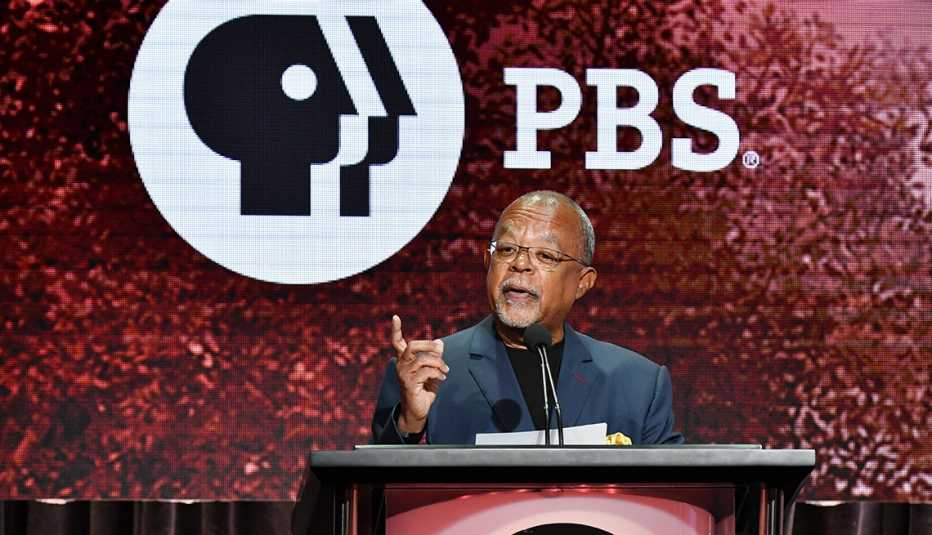AARP Hearing Center


Thanks to an encounter with a family scrapbook at a young age, ancestry fascinates Henry Louis Gates Jr., the Emmy-winning filmmaker, author and Harvard University professor raised in the tiny town of Piedmont, West Virginia.
As the host of the hit show Finding Your Roots, now in its sixth season on PBS, he helps guests like Ava DuVernay, Sean “Diddy” Combs and Angela Bassett discover the stories — and the secrets — their family trees contain.
Gates, 69, spoke with AARP about the early days of Finding Your Roots, the importance of knowing one's ancestry and the childhood revelation that sparked his passion for genealogy in the first place.
You've hosted Finding Your Roots since the beginning. How did the show come about?
I started Finding Your Roots in 2005, and I only included African American guests. If you go back, it was called African American Lives. At the time, there was a new method of using genetics that could trace African Americans’ ancestry back to Africa on their mother's mother's side using mitochondrial DNA.
A black geneticist, Dr. Rick Kittles, contacted me and told me about this exciting new scientific development. He was looking for prominent African Americans to be guinea pigs, and unbeknownst to him, I had been interested — more than interested, obsessed — with my own family tree since I was 9 years old.


How to watch
• What: Finding Your Roots, now in its 6th season on PBS. Its predecessor, African American Lives, aired four episodes in 2006, a special in 2007 and four episodes in 2008
• When: 8 p.m. ET Tuesdays on PBS, check your local listing to confirm; or on demand
• Where: Streaming on Amazon Prime, iTunes, and members-only PBS Passport. Also available on DVD from PBS.org. African American Lives 2 is available streaming on Amazon Prime; DVDs of the 2006 and 2008 seasons available on Amazon
What happened when you were 9?
It was the day we buried my father's father, Edward St. Lawrence Gates. After the funeral, my father took my brother and me upstairs in his parents’ house and showed us his father's scrapbooks.
After going through six or seven of these scrapbooks, he found the 1888 obituary of the oldest Gates we've ever been able to trace: Jane Gates.
He had us look at this obituary and it said: “Died this day in Cumberland, Maryland, Jane Gates, an estimable colored woman.” And then he showed us her picture, and he said she was a slave; she had been a midwife. He said, “I never want you to forget her name or her image."
That night, the last thing I did before I went to bed was look up the word “estimable” in the dictionary because I didn't know what it meant. And then I thought, Wow, that funny-looking lady is estimable. Maybe I'm estimable, too.
The next day, July 3, 1960, I did my family tree. I interviewed my parents in front of our little black-and-white TV set. I only traced my father's side and my mom's side, I didn't know anything about your mother's father's mother's side. I just wanted to know how I was related to this lady who was a slave.
The impact of slavery can make tracing one's ancestry particularly meaningful for African Americans. Why is that?
It's important because that knowledge was systematically taken away from us.



































































More on Black History
10 Fascinating Stops Along the U.S. Civil Rights Trail
Visit the Southern sites where ordinary citizens fought injustice and made historyCarter G. Woodson's Impact on Black History Month
The Harvard scholar fought to preserve African American contributions to society
7 Leaders Who Carry on Martin Luther King Jr.'s Legacy
These modern trailblazers continue to work on civil rights issues